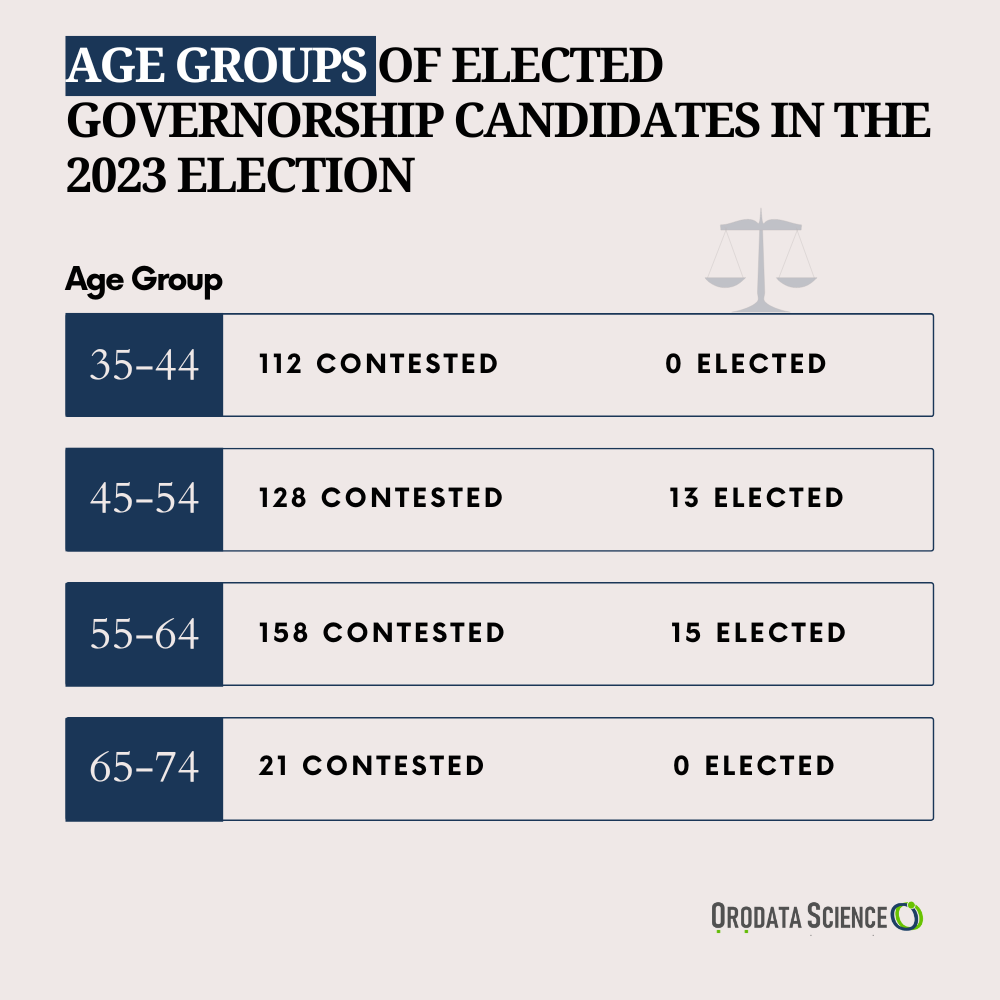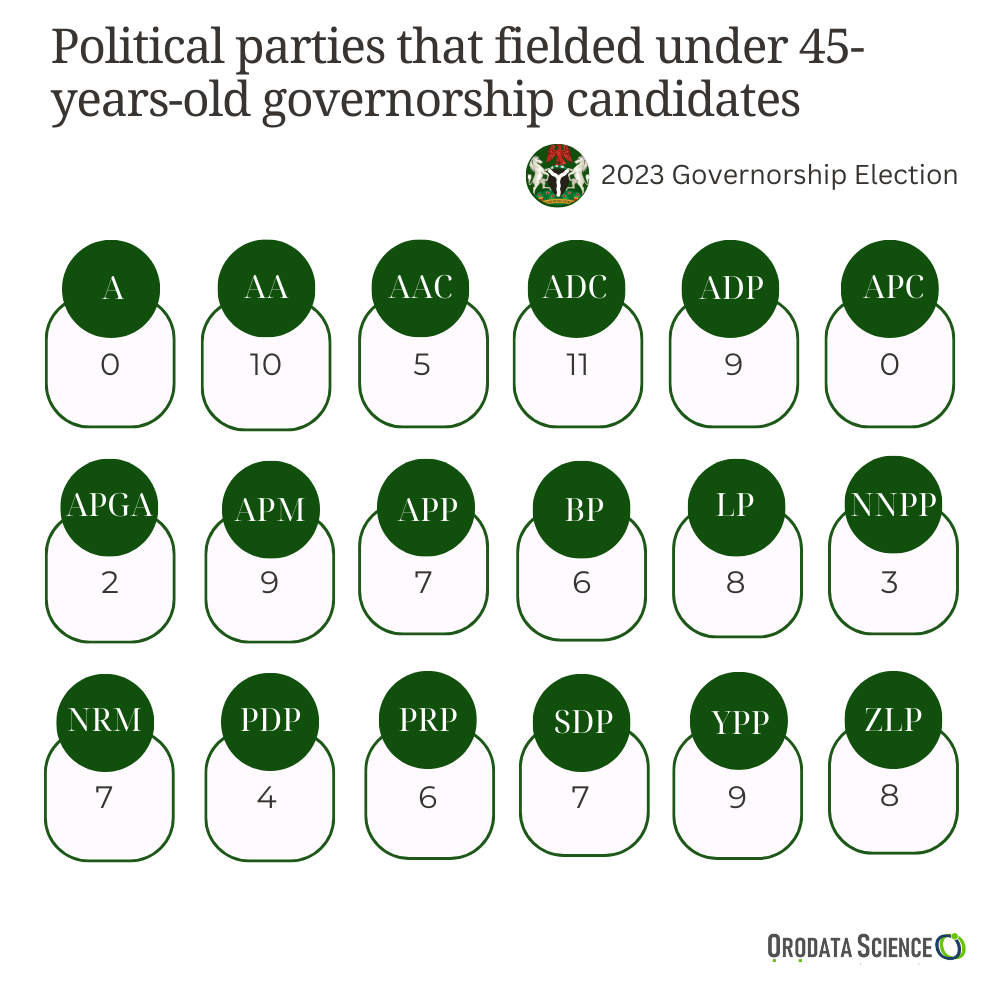The 2023 general elections, unlike previous elections, witnessed improved participation of young people, who make up the largest share of the country’s population.
According to the Independent National Electoral Commission, there were 93,469,008 registered voters in the 2023 general election; 37,060,399 or 39.65 per cent of them were between the ages of 18 and 34; while 33,413,591 or 35.75 per cent are middle-aged persons between the ages of 35 and 49. It is instructive to note that young people below the age of 30, account for 70 per cent of Nigeria’s population. However, the last election just like previous ones favoured older candidates about 45 years old.
However, even though the majority of the registered voters were young people, candidates within this age bracket did not perform well in the elections. The crux of this piece is the governorship election. Let’s divide the candidates into the following age groups: 35-44 with 112 candidates, 45-54 with 128 candidates, 55-64 with 158 candidates, and 65-74 with 21 governorship candidates. The outcome of the election shows that none of the candidates in the 35-44 age group won in the governorship elections across the 28 states where elections were held. The majority of the winners emerged from the 45-54 and 55-64 age groups. Of the 158 candidates in the 55-64 age group, 15 were elected governors; 13 were elected in the 45-54 age group; while no one was elected in the 34-44 and 65-74 age groups.

All the governorship candidates below 45 years performed woefully. Those who had a considerably good outing but still lost were Gbadebo Rhodes-Vivour of the Labour party and Olajide Adediran of the People’s Democratic Party, who were runners-up in the Lagos State governorship election. They were 39 and 44 years old respectively.
Mustapha Lamido of the PDP only managed to win a local government in the Jigawa governorship election. The 39-year-old lost to 59-year-old Umar Namadi of the All Progressive Congress.
Furthermore, it is observed that the leading political parties preferred older candidates, thereby denying young people their platforms. For instance, the ruling All Progressive Congress did not field any governorship candidate below the age of 45, while the main opposition party, PDP, fielded only four, none of whom won. The young candidates were found worthy of contesting in political parties without the financial strength and political structure to help them win.


